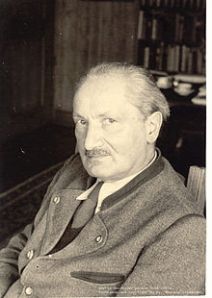Pythagoreanism can be defined in a number of ways.
(1) Pythagoreanism is the philosophy of the ancient Greek philosopher Pythagoras (ca. 570 – ca. 490 BCE), which prescribed a highly structured way of life and espoused the doctrine of metempsychosis (transmigration of the soul after death into a new body, human or animal).
(2) Pythagoreanism is the philosophy of a group of philosophers active in the fifth and the first half of the fourth century BCE, whom Aristotle refers to as “the so-called Pythagoreans” and to whom Plato also refers. Aristotle’s expression, “so-called Pythagoreans,” suggests both that at his time this group of thinkers was commonly called Pythagoreans and, at the same time, calls into question the actual connection between these thinkers and Pythagoras himself. Aristotle ascribes no specific names to these Pythagoreans, but the philosophy which he assigns to them is very similar to what is found in the fragments of Philolaus of Croton (ca. 470-ca. 390 BCE). Thus, Philolaus and his successor Eurytus are likely to have been the most prominent of these Pythagoreans. Philolaus posits limiters and unlimiteds as first principles and emphasizes the role of number in understanding the cosmos. Aristotle also identifies a distinct group of these so-called Pythagoreans who formulated a set of basic principles known as the table of opposites. Plato’s sole reference to Pythagoreans cites their search for the numerical structure of contemporary music and is probably an allusion to Archytas (ca. 420-ca. 350 BCE), who is the first great mathematician in the Pythagorean tradition. Starting from the system of Philolaus he developed his own sophisticated account of the world in terms of mathematical proportion.
(3) Many other sixth-, fifth- and fourth-century thinkers are labeled Pythagoreans in the Greek tradition after the fourth century BCE. By the late fourth century CE many of the most prominent Greek philosophers including Parmenides, Plato and Aristotle come to be called Pythagoreans, with no historical justification. There are nonetheless a number of thinkers of the fifth and fourth century BCE, who can legitimately be called Pythagoreans, although often little is known about them except their names. The most important of these figures is Hippasus.
(4) The last manifestation of Pythagoreanism, Neopythagoreanism, has been the most influential. Neopythagoreanism is not a unified school of thought but rather a tendency, stretching over many centuries, to view Pythagoras, with no historical justification, as the central and original figure in the whole Greek philosophical tradition. This Pythagoras is often thought to have received his philosophy as a divine revelation, which had been given even earlier to wise men of the ancient Near East such as the Persian Magi, the Hebrews (Moses in particular), and the Egyptian priests. All Greek philosophy after Pythagoras, insofar as it may be true, is seen as derived from this revelation. Thus, Plato’s and Aristotle’s ideas are viewed as derived from Pythagoras (with the mediation of other early Pythagoreans). Many pseudepigrapha are produced in later times in order to provide the Pythagorean “originals” on which Plato and Aristotle drew. Some strands of the Neopythagorean tradition emphasize Pythagoras as master metaphysician, who supposedly originated what are, in fact, the principles of Plato’s later metaphysics, the one and the indefinite dyad. Other Neopythagoreans celebrate Pythagoras as the founder of the quadrivium of mathematical sciences (arithmetic, geometry, astronomy and music), while still others portray him as a magician or as a religious expert and sage, upon whom we should model our lives. Neopythagoreanism began already in the second half of the fourth century BCE among Plato’s first successors in the Academy, but particularly flourished from the first century BCE until the end of antiquity. Neopythagoreanism has close connections to Middle and Neoplatonism and from the time of Iamblichus (4th c. CE) is largely absorbed into Neoplatonism. It was the Neopythagorean version of Pythagoreanism that dominated in the Middle Ages and Renaissance.


